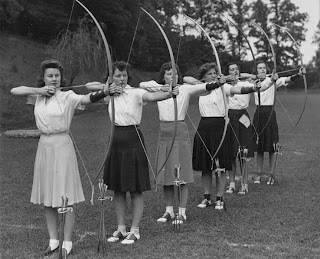Let's take a look at how we can talk with a secretary, assistant, or "gate keeper" on the phone so we can get to the person we want to reach.
A little context...
- I am not interested in lying about why I am calling.
- I assume the gate keeper does not have time to dilly dally: this is a timed event.
That said, I am going to use
rapport techniques
to try and connect with the gate keeper on a human level, and I'm going to use
convincing techniques to transparently and emotionally show why I should be speaking with my intended target.
Rapport
- Be Polite. More people are impressed by those who know how to be polite than by those who self-describe themselves as "no-nonsense and direct" (and who others describe as "ass holes").
- Use Friendly Tones. Don't be monotone, add some variety in your inflection. But please: stay natural. Nobody likes Goofy The Dip Wad except for other Goofy The Dip Wads.
- Use A Unique Greeting. These can be achieved through tone, rhythm, and word choice. The typical machine-gun-business-call starts like: "Hi this is Steve with Arrowood Training and I'm calling for Frank Anderson?" Uh... okay, thanks, telemarketer guy! Instead, slow down, be clear and articulate, and if you say something, MEAN IT. If you say "How are you?" Listen to their response and respond back to it.
I used to be an intern at The Actors Studio in New York on West 44th Street. One day my boss Jerry gave me a binder full of phone numbers of actors and directors. There were some huge celebrities in the binder, simply listed in
courier font like an old phone book. I recall seeing numbers for Al Pacino, Robert DeNiro, Christopher Walken, Julia Roberts, Robin Williams, and Stephen Spielberg, some of which found their way into my pocket notebook. Jerry told me all the A-list types I couldn't call, as he would be calling them, but he still gave me some people I was nervous about.
Usually I reached voice mail or an agent, but once I got the wife (presumed) of George Roy Hill, director of Butch Cassidy and The Sundance Kid and The Sting. She said "Hello?" and I said, "Is this a real person?" She laughed and after a minute of purely fun social interaction I heard George shouting in the background, "Who is that?" and I got to talk with him.
I have always felt that building rapport in many business dynamics is more difficult than doing in social dynamics. That's because as the initiator of the rapport building, I am often not only in a timed event with the receiver, but I also run the risk of coming across as insincere in my communication. This can lead to my being seen as manipulative, worsening relationship between them and me, or them and who I represent. My goal is to come across as human versus as 'caller #46'. The only way to do this is by being sincere. If you are not sincere in wanting to interact with the person on the other end, you probably should not be trying to build rapport with strangers.
Convincing
- Offer Transparent Explanation. Be clear and up-front with your intention.
- Use Emotional Conveyance. Show your natural sense of urgency, sincerity, or importance in what you want). It's natural to use both techniques simultaneously, and both require specific choices in tone, pacing, rhythms, emphasis, and word choices.
When I was in college working with a temp agency, I once was given a list of names to cold-call invite to some newly formed charity business organization to try and get them to join. The company I was temping for was not that concerned if they joined or not, they just wanted the calls made. But I made it my mission to get as many as I could.
I remember speaking with the assistant for a guy way up the ladder in Coca-Cola, and the way I got through to the guy was just by being really transparent. I ditched the robotic script the company gave me when his assistant answered. "Hello, my name is Steve Arrowood and I'm a temp worker in New Brighton, Minnesota. I'm calling to let David Iverson know about this new charity organization (whatever it was) so it can get started right. I'm not calling for money, I'm just calling for one minute of his time. From what I know about it, I think it is really worthwhile and he might be interested." She paused, "OK, who are you again?" I restated it all in different words and I got through.
Different people are convinced by different things in different scenarios. Sometimes you can get a read on the person on the other end of the phone and you can best choose your convincing technique. Sometimes they give you an opening like, "Who are you again?" and you need to recognize it and jump in to go one step farther in rapport or convincing.
Got another example or story of something that worked?
